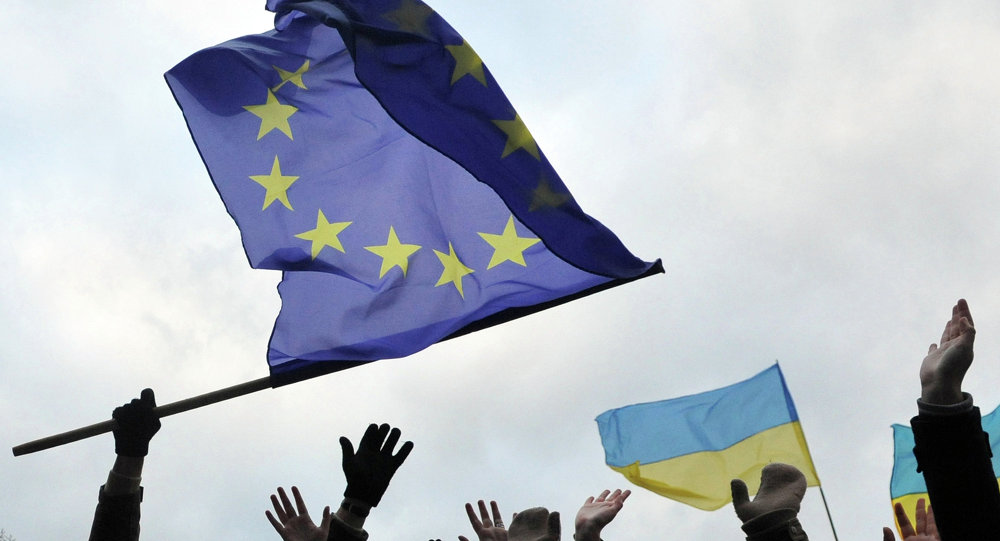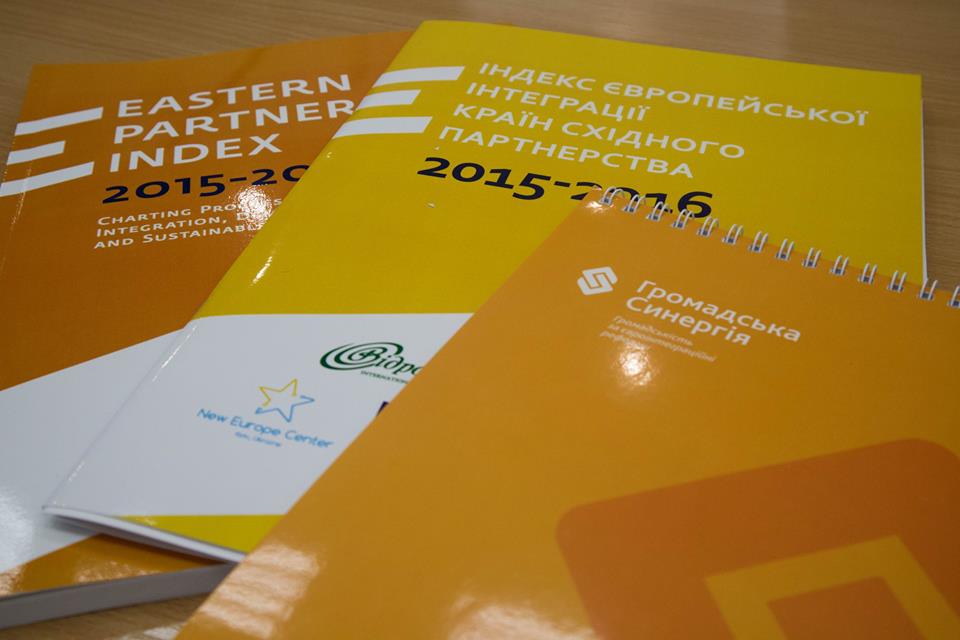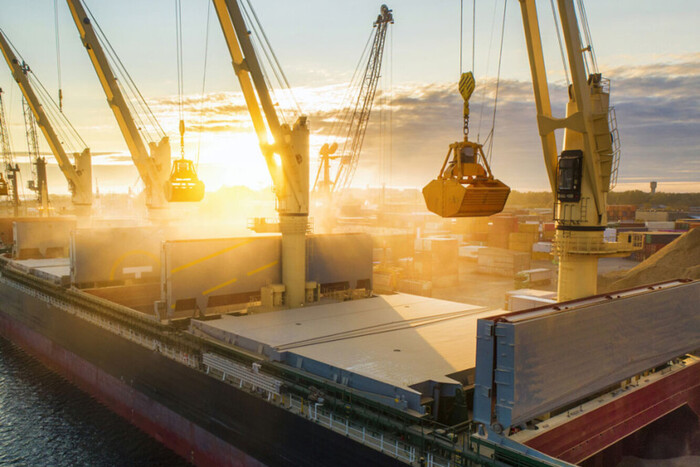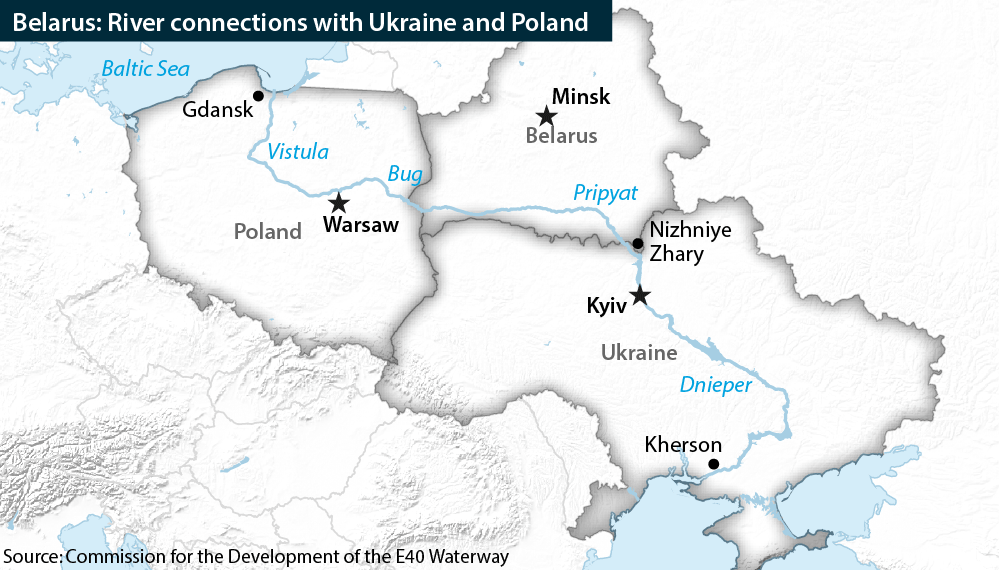More than eighty former political prisoners from former Soviet republics have issued an appeal to the Dutch population to vote in favor of the EU-Ukraine Association Agreement, a press release published by Robert van Voren, Chairman of the Foundation to Preserve the History of Maidan, states.
The former political prisoners, from six former Soviet republics, who together served more than 500 years of imprisonment, call upon the Dutch to vote “yes” and help Ukraine to make the change from “survival to self-expression, from authoritarian norms to democratic values,” which, according to the signatories, is particularly difficult “under conditions of acute geopolitical threat from Russia.”
On April 6, the Dutch population will be able to vote in a referendum to decide whether to support the Association Agreement between the EU and Ukraine or not. Even though the referendum is an advisory one, the Dutch government has indicated it will abide by the outcome.
Among the signatories are, apart from 45 Ukrainians, also 23 Russian former political prisoners, as well as 6 Lithuanians, 3 Georgians, 2 Armenians, one Estonian and one Belarusian. Also three former Polish political prisoners signed, including the well-known dissident leader Adam Michnik. The longest term served is 31 years of imprisonment.
The signatories express their concern for the current threat against European norms and values, which in their view is clearly coming from Putin’s regime, and conclude that “national selfishness and everyday pragmatism … are slowly eroding the basic values of European civilization. Without restoring one’s ability to distinguish truth from deceit, it becomes impossible to distinguish good from evil. (…) Evil will reach you everywhere and will make you choose: either to surrender to evil, or to stop it. To a certain degree this is the choice that stands before you during the upcoming referendum.”
Appeal to the Dutch population
March 11, 2016
At the end of the 1990s, the famous European diplomat Romano Prodi said: “We expect Ukraine to give us a clear signal of where it wants to be – with EU or with Russia. We will respect any decision”.
Since then, twice, in 2004 and in 2013-14, Ukraine gave strong signals of its desire to integrate into Europe. Those signals were so strong, that they raised tough questions about the identity of Europe itself and its values.
Why does The Netherlands then doubt today?
One of the reasons can be found in Ukraine itself. It turned out that to fight for the values is much easier than to live in accordance with them. Probably everyone knows it from his own experience. To move the focus from survival to self-expression, from authoritarian norms to democratic values, under conditions of acute geopolitical threat from Russia is difficult. Europe is beginning to experience similar difficulties, while facing the challenge of a stream of refugees.
So, Ukraine needs time, and it would be a shame if it would be deprived of the chance to acquire European values with a Dutch “No”.
The second reason is related to you, to the citizens of the European Community, and to your ability to find the truth. In the present circumstances, this task has at least three aspects.
The Putin regime has made its choice and is trying to restore the imperial idea of a strong Russia. Russia has indeed greatness and strength, but Putin is looking for it in the wrong place. Actually he is destroying Russia’s greatness, because he relies on aggression, military occupation of other countries, violations of the international order, disinformation and hate speech. Therefore Putin is not Russia, and neither were Brezhnev, Stalin and Lenin before him.
Ukraine is not able to compete with the propaganda capacities of Russia, and therefore inevitably becomes a victim of false interpretations. In this sense, Ukraine depends on you, on your ability to distinguish truth from lie. However, at stake is not only the security of Ukraine.
Failure to decode the propaganda construction of Putin regime seriously undermines the security of Europe in its entirety. Only the blind cannot see how great the danger is today.
We, former political prisoners of the communist concentration camps, already at an early age believed in European values and paid for them with our freedom, and some of us with their lives. Today we are concerned about the national selfishness and everyday pragmatism that are slowly eroding the basic values of European civilization.
Without restoring one’s ability to distinguish truth from deceit, it becomes impossible to distinguish good from evil.
We, fighters against Communist regimes, we know that it is impossible to hide from evil in self-isolation. Evil will reach you everywhere and will make you choose: either to surrender to evil, or to stop it.
To a certain degree this is the choice that stands before you during the upcoming referendum.
Signed by:
(name, country of origin and current residence if different, number of years in imprisonment)
Antoniuk Zinovy (Ukraine – 11 years)
Arutyunyan Vardan (Armenia – 8 years)
Ayrikyan Paruyr (Armenia – 17 years)
Babich Sergey (Ukraine – 27,5 years)
Bolonkin Alexander (Russia/USA – 15 years)
Brodsky Vladimir (Russia/Israel – 1,5 years)
Buival Valery (Belarus)
Bukovsky Vladimir (Russia/Great Britain – 12 years)
Cherniavskaya-Naboka Inna (Ukraine – 3 years)
Chornomaz Bogdan (Ukraine – 3 years)
Davydov Viktor (Russia – 4 years)
Dudaeva Alla (Russia – Sweden)
Dzabiradze Vahtan (Georgia – 3,5 years)
Dzhemilev Mustafa (Ukraine – 15 years)
Geiko (Matusevich) Olga (Ukraine – 6 years)
Genke Nikolai (Russia – 4 years)
Glebovich Petr (Poland)
Gluzman Semyon (Ukraine – 10 years)
Gorbal Mykola (Ukraine – 16 years)
Gorin Bogdan (Ukraine – 3 years)
Gorin Olga (Ukraine – 6 years)
Gviniashvili Tariel (Georgia – 4 years)
Idiogov Ahiad (Russia/France)
Ivlyushkin Nikolai (Russia- 8 years)
Kadyrov Sinaver (Ukraine – 3 years)
Kalynets Igor (Ukraine – 9 years)
Karavansky Sviatoslav (Ukraine/USA – 31 years)
Khmara Stepan (Ukraine – 7 years)
Khmelevskaya Yadviga (Poland)
Kravchenko Valeriy (Ukraine – 4 years)
Kudyukin Pavel (Russia – 1 year)
Kuksa Victor (Ukraine – 2 years)
Kulchynsky Mykola (Ukraine – 3 years)
Kutsenko Grigory (Ukraine – 4 years)
Kuznetsov Eduard (Russia/Israel – 14 years)
Lifshits Vladimir (Russia/Israel – 1 year)
Lokhvitskaya Larisa (Ukraine – 3 years)
Lukyanenko Levko (Ukraine – 27 years)
Makowiychuk Gregory (Ukraine – 3 years)
Manannikov Aleksei (Russia – 3 years)
Marmus Mykola (Ukraine – 8 years)
Marmus Vladimir (Ukraine – 9 years)
Marynovych Myroslav (Ukraine – 10 years)
Matusevich Mykola (Ukraine – 10 years)
Matviyuk Kuzma (Ukraine – 4 years)
Mazur Dmytro (Ukraine – 9 years)
Michalko Myhaylo (Ukraine – 3 years)
Mikhnik Adam (Poland – 5 years)
Mikitko Jaromir (Ukraine – 5 years)
Miliyavski Leonid (Ukraine – 3 years)
Niklus Mart (Estonia – 16 years)
Orlov Yuri (Russia – 7 years)
Ovsienko Vasyl (Ukraine – 13,5 years)
Pavlov Vadim (Ukraine – 3 years)
Pečeliūnas Saulius (Lithuania – 7 years)
Podrabinek Alexander (Russia – 5,5 years)
Podrabinek Kirill (Russia – 5,5 years)
Popadyuk Zoryan (Ukraine – 15 years)
Popov Kirill (Russia – 1.5 years)
Povilionis Vidmantas (Lithuania – 2 years)
Protsenko Pavel (Russia – 8 months)
Reznikov Alexey (Ukraine – 7 years)
Rivkin Michael (Russia/Israel – 5 years)
Rudenko Raisa (Ukraine – 6,5 years)
Rusin Ivan (Ukraine/USA – 7 years)
Sadunaite Nijole (Lithuania – 6 years)
Senkiv Vladimir (Ukraine – 7 years)
Shevchenko Oles (Ukraine – 7 years)
Skobov Alexander (Russia – 7,5 years)
Slobodyan Mykola (Ukraine – 5 years)
Smirnov Alexey (Russia – 5 years)
Smogytel Vadim (Ukraine – 3 years)
Sofyanik Oleg (Ukraine – 2 years)
Soselia Guram (Georgia)
Superfin Gabriel (Ukraine/Germany, 7 years)
Terleckas Antanas (Lithuania – 13 years)
Timofeev Lev (Russia – 2 years)
Tuckus Andrius (Lithuania)
Vilkas Leonardas (Lithuania)
Virchenko Nina (Ukraine – 6 years)
Yakubivsky Myhaylo (Ukraine – 1 year)
Zissels Joseph (Ukraine – 6 years)








